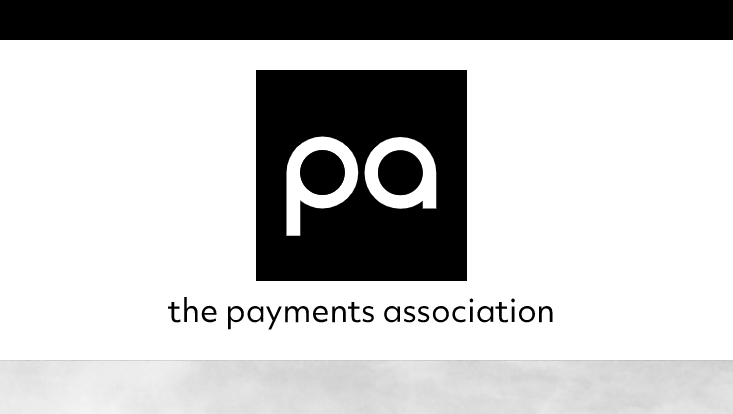Published
- 02:00 am

Complete end-to-end payment ecosystem provider, Monneo, has won the ‘Best Use of IT in Commercial Banking’ award at the FSTech Awards 2022.
The award recognises the most effective use of IT in improving business processes within business-to-business commercial banks and other similar companies. The win reaffirms Monneo’s continued innovation and productivity in providing a leading service for the ecommerce industry, with accessibility across the world.
In winning the award, Monneo has triumphed in a category which included global giant J.P. Morgan Wealth Management and Cognizant Technology Solutions. As such, the victory secures Monneo as a veritable leader in its sector.
As a business, Monneo offers an accessible, flexible solution that is ideal for companies from the ecommerce sector, including online merchants, affiliate networks, marketing companies of all sizes, as well as any business or individual currently underserved by traditional financial services. The company’s infrastructure is based on the Open Banking concept, however the platform itself represents a superior market alternative, which is breaking new ground.
Speaking on the victory, Lili Metodieva, Managing Director of Monneo commented: “We’re very happy to have won at this year’s FSTech Awards. Our team has worked tirelessly over the last year to build our platform and last night’s win is testament to how successful these efforts have been. Therefore, I’d like to dedicate this victory to all our staff, as it would not have happened without their continued endeavour.
“Of course, we’d also like to thank the awards’ organizers who put on an amazing occasion, which was enjoyed by all in attendance. We were listed in a very strong category with some high-profile companies, so it’s a moment of genuine pride to be chosen as the "Best Use of IT in Commercial Banking". We’re now hoping to repeat this success at next year’s event, which we’re already looking forward to.”
Now in its 22nd year, the FSTech Awards brings together the best companies across the sectors of fintech and financial services. This year’s event was held in the London Marriot Hotel in Grosvenor Square. On account of its success, Monneo has now been entered into the awards’ ‘Hall of Fame’. Alongside its victory, the company was also shortlisted in the category of ‘Financial Sector Innovation of the Year’.
For more information about Monneo, please visit: www.monneo.com
Related News
- 01:00 am

Versana today announced its plans to launch a leading-edge, industry-backed syndicated loan platform, joining together banks, institutional lenders and their service providers to bring transparency, efficiency and velocity to this $5 trillion market.
Industry veteran Cynthia Sachs has been named as CEO and member of the Board of Directors. Sachs comes to Versana with more than twenty-five years of Wall Street experience, primarily creating, growing and leading loan-related businesses in the banking and technology sectors. She has spent the majority of her career as a leveraged finance banker, portfolio manager and trader at Morgan Stanley, Natixis and Bank of America, and later served as Global Head of Fixed Income Valuations at Bloomberg where she led the creation of BVAL, the firm's evaluated pricing service. Most recently, Sachs was the CEO and Chief Investment Officer of Athena Art Finance, a specialty finance start-up founded by Carlyle.
"I am excited to lead this venture to transform the syndicated loan market, a true game-changer in an area of finance that has lagged in technology and innovation," said Sachs. "Versana is backed by some of the biggest players and is being built by industry veterans with decades of experience working in the loan ecosystem. We know first-hand the challenges that exist today and are passionate about fixing the market's inefficiencies and inherent risks, setting it up for accelerated growth for years to come."
The $5 trillion syndicated loan market is poised for significant growth, particularly during inflationary times when interest rates typically rise and market participants turn to floating rate financial products. But the highly fragmented and inefficient nature of the current market ecosystem – settlement times average more than 20 days – often results in frustration among participants, significant additional costs and a high level of operational challenges. Versana's mission is to change all that, transforming the industry to foster an inclusive market structure that connects participants as never before, ultimately creating a healthier environment to draw in unprecedented amounts of capital and serve clients better.
"Our industry sits at the crossroads of global banking, private equity, asset management, insurance and private wealth, and yet we haven't seen the digital transformation that has come to other parts of the capital markets," said Lee Shaiman, Executive Director of the Loan Syndications & Trading Association (LSTA). "Initiatives like Versana provide our members with operational innovations that significantly reduce reliance on highly manual processes while streamlining workflows. Versana's position as an industry-wide collaboration is in the spirit of the LSTA's mission, and we whole-heartedly applaud what Versana is setting out to do. It has been needed for a long time."
For additional information and updates, please visit versana.io.
Commentary from the Founding Banks
Alex Naboicheck, Head of U.S. Leveraged Loan Trading at Bank of America: "We saw an opportunity to spur innovation in the loan market and joined with other leading agent banks to form Versana. By addressing many of the challenges inherent in the industry, the entire loan community will benefit from Versana."
Nina Guinchard, Global Head of Transaction Management at Citi: "Innovation like Versana's is critical for enabling growth and longevity. Real-time sharing of information is at the center of today's society, and enabling syndicated loan infrastructure to operate the same way will be a huge step forward."
Jeff Cohen, Global Head of the Leveraged Finance Group at Credit Suisse: "As a leader in the syndicated loan market, Credit Suisse is pleased to support Versana and its mission to transform the syndicated loan market through the lifecycle of a loan by bringing innovation and technology to the forefront of the industry."
Dan Wilkening, Chief Administrative Officer, Commercial Banking and Head of Global Services at JPMorgan Chase: "We're proud to be a leader in transforming the industry's syndicated loan market. There's been rapid acceleration in this market, and with Versana, we'll be able to make loan data available to our clients more efficiently and transparently."
Related News
- 09:00 am

- Microsoft for Startups and Ansarada unite to make it easier and faster for startups to raise capital and grow
- Ansarada is the first third-party technology vendor to forge a global partnership of this kind with Microsoft for Startups
- Ansarada’s suite of solutions offered to every participant of Microsoft for Startups global program
Microsoft for Startups and Ansarada has announced a new global partnership to make it easier and faster for startups to raise capital and grow. Ansarada is the first third party technology vendor to forge a global partnership of this kind with the Microsoft for Startups program and will be a central part of the offer to participants.
Microsoft for Startups helps remove traditional barriers to building a company with free access to technology, coaching, and support. The aim of the program is to create and maintain a healthy ecosystem where its partners and customers can succeed and grow. Startups play a pivotal role in a thriving ecosystem given their outsized ability to push entire markets forward.
Ansarada’s AI powered Information Governance Platform will be added to the benefits offered to founders and will enable them to make more informed decisions about their fundraising strategy and grow their businesses.
Kirk Safford, Director, Microsoft for Startups said: “We are partnering with innovative companies like Ansarada to help founders achieve more. As a part of Microsoft for Startups Founders Hub, startups can now receive access to Ansarada’s AI-powered platform designed to help streamline the process of raising capital.”
Stuart Clout, Co-Founder, Ansarada said: “Ambitious startups and small businesses are the beating heart of every economy. However, current barriers to funding and tailored support has left many out in the cold. Our unique and cutting-edge technology will help founders make the right decisions when it comes to their financing strategies.
“We are proud to partner with Microsoft for Startups, which has been instrumental in helping new and exciting businesses on their road to success. We look forward to providing them with ongoing support as they continue on their growth journey.”
Related News
- 08:00 am

Fintech aiming to advance financial inclusion names experienced finance executive to lead new department
Wahed, a fintech company that aims to advance financial inclusion through accessible, affordable, and values-based investing, announced the creation of a Risk and Audit Department, which will be headed by risk veteran and General Manager of Wahed’s UK operations, Umer Suleman.
Suleman has a wealth of experience and a proven track record of over 15 years of regulatory, risk, and strategy consultancy roles. During his seven years at HSBC, he oversaw the risk management and expansion of the bank from 9 countries to 25 in just one year, ensuring that all locations adopted the Global Standards of Financial Crime Compliance.
In his new role, Suleman’s responsibilities will include managing Wahed’s risks, deploying appropriate risk-transfer strategies, and working with the Compliance Department on international regulations and financial policies.
“Creating a dedicated risk function is a strong indication of growth and sophistication, as Wahed manages the complex and often interconnected risk parameters of its various operations across different jurisdictions,” said Musa Abdul-Basser, Chief Legal Officer & Global General Counsel at Wahed. “With Umer’s quaifications and experience, he was the natural choice to head our risk operations.”
As Chief Control Officer and Chief Risk Officer for various global organizations, Suleman implemented fit-for-purpose risk frameworks throughout his career in traditional and digital financial services. He has also earned qualifications at postgraduate level in governance, risk, and compliance. This experience, coupled with his commitment to lead an ethically-focused fintech, makes him an ideal leader for this critical role.
“I look forward to leading this new team and implementing a ‘3 Lines of Defence' risk management model that provides structure around internal controls and compliance. It’s important that this structure reflects the global nature of our business today but can also be adapted as we continue to scale. We need to have flexibility in the way we manage our risks to reflect the changing nature of the organizational environment and diversity of users, without compromising on our key risks.” said Umer Suleman, Global Risk and Audit Department Head at Wahed.
Related News
- 05:00 am

Designed to scale new projects and use cases built on the XRPL,
the fund will support and accelerate the blockchain’s developer community
Ripple, the leader in enterprise blockchain and crypto solutions, is committing 1B XRP to accelerate development and new use cases on the XRP Ledger (XRPL). The fund is an extension to the XRPL Grants program which launched in 2021 and, to date, has awarded $6 million in total funding to more than 50 open-source projects built on the XRP Ledger.
Developers on the XRPL want to build and scale their apps on the ledger largely due to its speed, scalability and carbon neutrality. Inspired by the tremendous developer interest garnered from the community-driven XRPL Grants program, Ripple will provide financial, technical, and business support to introduce several new developer programs as part of the fund. Over the next 10 to 20 years, the 1B XRP, as part of the grants program, will be disbursed to developers eager to build and scale their apps from proof-of-concept to new businesses on the XRP Ledger. The fund’s programs are specifically designed to accelerate, train, mentor and scale projects developed by the XRPL community, including:
- Accelerator program: A multi-month bootcamp that will provide projects on the XRPL with business and financial support, training and mentorship.
- Decentralized finance (DeFi): A program to support DeFi projects on the XRPL.
- Diversity & Inclusion (D&I): A fund to work with university partners to build a pipeline of diverse applicants, as well as partnerships with organizations and affiliation groups supporting underrepresented communities in software development.
- Sustainability: A program to address challenges related to sustainability, e.g. ESG NFTs, carbon credits tokenization.
- Expanded judging committee: Growing the panel of XRPL Grants program judges to ensure diverse viewpoints and expertise when evaluating projects.
“The developer community has seen a tremendous growth and passion for building on the XRP Ledger that has only increased since the launch of the XRPL Grants program last year,” said Monica Long, GM of RippleX at Ripple. “With this new expansion, we are committing to participating in and supporting the developer community long-term. As the community grows, and the infrastructure and apps ecosystem matures, we are also excited about the opportunity for RippleNet customers to benefit from the community’s offerings and vice versa.”
The XRPL Grants program furthers Ripple’s shared vision with the developer community to help build the Internet of Value by contributing improvements and new use cases to blockchain technology and specifically, the XRPL. The first two waves of the XRPL Grants program focused on projects related to NFTs and Federated Sidechains, respectively.
The third wave of applications for the XRPL Grants is now open and seeks projects focused on open-source contributions. For more information on the XRPL Grants program, please visit www.XRPLGrants.org.
Related News
- 03:00 am

X-Margin’s credit evaluation will reduce the inherent risk of DeFi lending by providing greater visibility to lenders using the Atlendis protocol
Atlendis, a capital-efficient DeFi lending protocol that enables crypto loans without collateral, is partnering with X-Margin, the credit oracle risk engine for trading firms and institutions, to enable capital-efficient crypto borrowing and lending. The partnership will accelerate the adoption of uncollateralized loans on the blockchain, by using proven methodologies to reduce the inherent risk of DeFi lending.
In overcollateralized lending a borrower can only access an amount of secured credit provided they front at least the same amount in collateral, limiting borrowers in their borrowing capacity and lenders in their potential return. Returns in uncollateralized lending can be significantly higher, correlating to the risks incurred by liquidity providers who have no visibility on borrowers’ credit. However, lack of transparency on a borrower’s profile and creditworthiness may create a barrier for lenders to make an informed decision about which borrowers to lend to. Potential credit risks can discourage lenders from depositing into liquidity pools, reducing a borrower’s borrowing capacity.
The Atlendis protocol will address these issues by creating a more capital-efficient environment. X-Margin's privacy preserving technology will be integrated with the Atlendis protocol. X-Margin will enable the measurement of institutional borrower creditworthiness by computing a credit risk evaluation without revealing the sensitive underlying data.
X-Margin straddles CeFi as well as DeFi applications with a credit oracle for counterparty credit evaluation, encompassing real-time risk monitoring across borrower portfolios, KYC and financial statement analysis. Lenders gain transparency of risk through X-Margin’s privacy-preserving credit oracle, alongside additional security, with optional programmatic control of funds.
For Borrowers
One of the steps in the Atlendis whitelisting process will be for borrowers to obtain a credit evaluation from X-Margin, which will be displayed on the Atlendis protocol. Once borrowers are whitelisted, they will get access to borrower-specific liquidity pools providing a revolving line of credit at a borrowing rate established via market rate discovery.
For Lenders
Lenders on the Atlendis protocol will have the ability to choose the borrowers they trust to lend to as well as their preferred lending rate. Through the partnership with X-Margin, lenders will have access to more data on borrowers to make informed lending decisions and to exercise more granular control over their portfolios.
Alexis Masseron, Co-Founder and CEO of Atlendis Labs, said:
“While the Atlendis protocol focuses on the financial aspect of the platform to make it fair and fully functional, it cannot vouch for the reputation of the borrowers involved. We are excited to partner with X-Margin, as onboarding X-Margin’s credit evaluation will provide more information on borrowers without revealing sensitive data, and thus attract lenders with verification that loans will be more secure.”
Darshan Vaidya, CEO of X-Margin, said:
“On-chain credit markets will be one of the fastest-growing sectors of DeFi, and the backbone of this will depend on an oracle-driven approach that can capture the off-chain and on-chain activity of a borrower in a privacy-preserving way. We are delighted to be working with the Atlendis Labs team to help build a more efficient credit marketplace for the crypto ecosystem.”
To be notified when the Atlendis protocol is live, sign up for updates here.
Related News
- 07:00 am

Following the cessation or non-representation designation of Sterling, Swiss and Japanese Yen LIBORs at the end of 2021, financial services firms and corporations are largely on track for a successful transition, according to a new survey from Bloomberg. However, they continue to navigate challenges related to operations, selection of alternative rates, and re-papering of existing contracts. The survey, conducted in February 2022, polled 130 executives from financial services firms and corporations around the globe.
According to the findings, the transition away from USD LIBOR is well underway, with 51% of firms no longer trading USD LIBOR-indexed products, including floating-rate notes, cross-currency swaps and Eurodollar futures.
The delayed cessation for key USD LIBOR tenors until June 2023 has given firms additional time to make transition decisions around instruments such as non-centrally cleared USD LIBOR derivatives and tough legacy contracts. In terms of how to handle non-centrally cleared derivatives, firms are split on strategy. Twenty eight percent of firms indicated that they were “not sure” how to address these derivatives before the cessation date, while a further 13% were still formulating a transition strategy. In addition, 20% are planning a mixture of re-papering to RFR equivalents and ISDA fallbacks, and 11% plan to let these derivatives run to maturity via the ISDA fallbacks.
Firms still have work to do in the transition away from LIBOR as 50% of respondents noted they are facing challenges related to systems and operational readiness. However, it is clear that firms have made significant progress in their transition efforts as a similar June-August 2021 survey by Bloomberg and the Professional Risk Managers’ International Association (PRMIA), found that 82% stated that systems and operational readiness were a hurdle at the time. The February 2022 data shows that the markets have likely learned from the Sterling, Swiss Franc and Japanese Yen LIBOR transition, and have moved forward in critical areas since the previous survey, but technical issues remain.
Repapering of existing transactions and agreements continues to be a challenge for 36% of respondents, while 45% indicated difficulty around choosing new alternative rates and conventions. Fifteen percent of those surveyed noted that customer outreach and negotiation remained a challenge.
The loan markets also continue to see the effects of the transition. For LIBOR-indexed term loans, 63% of firms indicated that they would continue the LIBOR transition process throughout 2022 and potentially into early 2023. Fifteen percent said their timeline for term loan transitions is “undecided,” and only 9% said their transition process was already complete.
“The data clearly shows that while the LIBOR transition is proceeding well overall, there is more work to be done,” said Jose Ribas, Global Head of Risk and Pricing Solutions at Bloomberg. “We work closely with clients on their transition needs, and continue to provide reliable solutions, robust data and analytics, and the right tools to ensure their transition efforts can move forward smoothly.”
Bloomberg delivers a comprehensive suite of solutions to support LIBOR transition. Bloomberg’s Multi-Asset Risk System (MARS) supports pricing and analytics based on a range of alternative reference rates (ARRs), including official-sector-endorsed risk-free rates (RFRs), including scenario analysis to determine the impact of transitioning to RFRs on portfolios. Licensed customers can download cash security fallback datasets to help identify relevant fallback language for IBOR-linked securities in their portfolios. Clients can also access fixed income reference data, which provides detailed terms and conditions supporting the new structures and calculations, and corporate actions data. On the Terminal, Bloomberg offers trading services in cash securities and derivatives referencing RFRs. Bloomberg also publishes term and spread adjustments for the fallbacks that ISDA intends to implement for certain IBORs. In addition, BSBY, Bloomberg’s Short-Term Bank Yield Index is a series of forward-looking reference rates with embedded risk premia that measures the yield at which systemically important banks access USD unsecured wholesale funding. For more information, visit Bloomberg.com/Libor.
Related News

Vince Graziani
CEO at IDEX Biometrics
Strong Customer Authentication (SCA) has created the biggest shift in retail payments since contactless technology, having finally been enacted in full across Europe as of M see more
- 04:00 am

The angel investor fund will be used to issue new digital assets, marketing, branding and its global expansion to become a preferred choice for digital currency and trading in the digital world – the Metaverse.
Eikonikos, an open-world metaverse start-up, has raised $2 million in pre-seed funding by angel investors. Eikonikos envisions to create an open metaverse platform that is owned by Web3 followers, developers, and a growing community of players. Nearly a dozen investors, including block chain players, took part in the round.
The current pre-seed fundraising round would help the company to extend its ecosystem, bringing more fans into the digital realm.
Eikonikos was founded with the goal of creating a joyful and exciting open metaverse. The metaverse does have real promise. It could be used for training simulations, technical assistance, and immersive video chat. It could revolutionise education, gaming, and business. VR actually amplifies real-life experiences, all of that remains philosophically and technologically resolved by Eikonikos.
“We believe we are unique, and we have already begun to demonstrate that through our execution — the quality of our design, experience, platform design, and so on,” said Mohamed Vasif, Founder and CEO of Eikonikos.
The company is currently in the process of issuing digital assets for investment as it gears up for commercial launch in May 2022, when its valuation will jump.
The announcement comes a day after Dubai Government introduced new legislation for the digital asset sector, joining other global hubs in bringing the nascent sector under their regulatory purview.
“We are very determined to create a platform that directly competes and rivals metaverse giants like Decentraland and Sandbox,” said Vineeth, CMO and co-founder of Eikonikos. “We will be able to interact with other Metaverse economies in the future. Building a dedicated and crypto-native audience that likes our dope Non-Fungible Token (NFT) designs, intense gameplay.”
In addition to introducing Virtual Assets Law, Dubai Government also announced the creation of a new regulator in charge of digital assets. The newly formed Virtual Assets Regulatory Authority (VARA) will oversee the industry in all emirate’s special development and free zones, except the Dubai International Financial Centre which has its own independent regulatory and judicial system.
The project's basic design envisions Eikonikos as a fully functional DAO led by the community and focused on providing high-quality experiences.
C.J, a partner at the angel investment firm, said, “As investors, we are primarily concerned with the product and the personnel behind it. Eikonikos has a top-tier metaverse product and is directed by a well-balanced crew, that promises to become a big global player in future.”
Related News
- 09:00 am

A new industry report produced by The Payments Association, UK Finance and Latham & Watkins assesses the impact of UK regulation on payments businesses and identifies key opportunities for enhancements.
The Payments Association (formerly The Emerging Payments Association (EPA)), UK Finance, the collective voice for the banking and finance industry, and global law firm Latham & Watkins, today announce the launch of ‘UK Payments Regulation Review: Making sense of where to go now’. This industry report explores the impact of regulation and outlines how industry, lawmakers and regulators can work together to strengthen and enhance the country’s payments infrastructure and regulatory and supervisory frameworks, following both Brexit and in light of the expanding digitalisation of the economy.
With commerce and day-to-day personal finance transactions increasingly moving online, regulatory priorities must continue to shift from financial stability to supporting market innovation. Similarly, technologies that were unthinkable around the turn of the millennium like digital identity frameworks and distributed ledger technology have entered mainstream conversations and are likely to have profound impacts for the sector.
The report identifies a number of opportunities that lawmakers, regulators and industry may wish to take advantage of. With payments as a foundational pillar of the financial services market and wider economy, as well as a creator of jobs and investment, the report outlines how the payments sector can drive change, in-part, through self-regulation and how its future should involve collaboration between market participants and regulatory stakeholders. It goes on to discuss how UK payment firms operate internationally, the importance of international market infrastructure access, including SEPA, and the need for regulations to continue to provide international parity to support, and reduce friction in, cross-border payments.
Reviewing everything from major socioeconomic trends to recent case law, the report outlines practical next steps.
Tony Craddock, Director General at The Payments Association, comments: “It is an exciting and challenging time to be in the payments space. In a very short time, we have seen the explosive growth of the FinTech industry, the arrival of distributed ledger technology like cryptocurrency and stablecoins and the UK leaving the EU while simultaneously adopting PSD2 regulations. This is a timely report that grapples with the major issues in the payments industry and produces ideas on how to create the next generation of regulations, and we are keen to see how the wider industry reacts to the proposals we make.”
Jana Mackintosh, UK Finance, says: “We believe that regulators and industry have an opportunity to think afresh about payments regulation and supervision. This industry report will help players in the sector to reflect on the digitalisation of payments and consolidate past learnings that can be drawn upon as the industry moves forward."
Brett Carr, Senior Associate Fintech & Payments, Latham & Watkins, adds: “We are proud to lend our firm’s legal expertise and deep fintech and payments experience to this report at such an important time for the sector. The UK and EU payments markets have experienced a prolonged period of regulatory change punctuated by implementation challenges, the impacts of Brexit, Covid-19 and a shifting supervisory strategy of the regulators. With question marks remaining over the UK’s priorities for the regulation and development of the fintech sector, market participants will be anticipating how the regulatory environment is set to progress. This report presents a compelling case for greater cooperation between the industry, lawmakers and regulators, and calls for an evolution in approach that both enables and supports innovation.”
To download a copy of the report, please visit: https://bit.ly/3iahWq2
For more information on the work and services of The Payments Association you can visit https://thepaymentsassociation.org/ or contact jay.bennett@thepaymentsassociation.org









